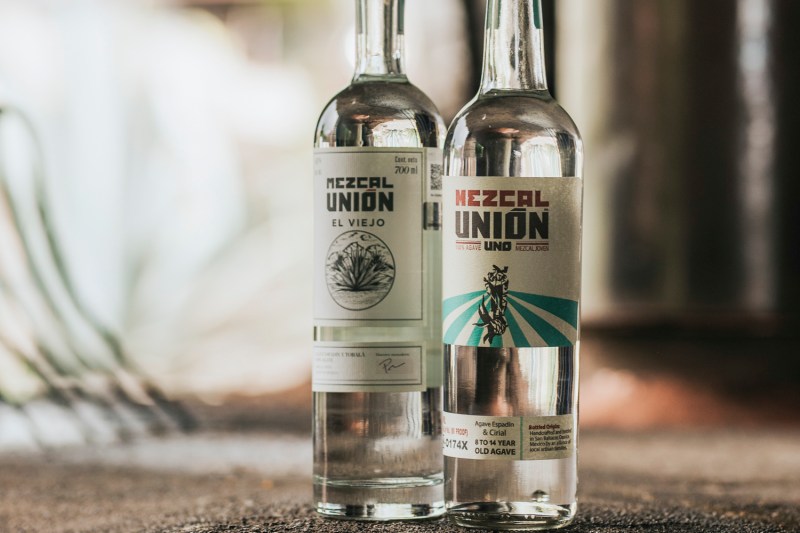
It’s far too easy to picture the drinks biz in its own lofty bubble, floating above the rest of the universe, everyone with a cocktail in hand. We like to associate it with festive occasions, beach-y sunsets, and stylish barkeeps slinging drinks in even more stylish bars. It’s a carefree fantasy spawned by the temporary effects of the drinks themselves.
But it’s an industry. Which means it’s not always fair to all parties involved. Fortunately, there are beverage endeavors that truly look after the people they depend on. From cider to wine, and most things in between, the industry is evolving in its woke-ness.
When you distill the entirety of the business, it almost always comes down to farmers. The field workers are responsible for the malt, the hops, the agave, the grapes, the sugarcane, etc. Without these key ingredients, the thing crumbles like a house of cards. Or, it becomes completely automated, which is a separate story with its own inherent issues.


In Mexico, where mezcal is enjoying a deserved share of the spirits limelight, a group of locals is looking to stimulate a limping economy. Mezcal Unión is taking a people-first approach to the treasured local drink. The Mexico City outfit is specifically targeting the greatly unemployed agave-growing states of Chiapas, Guerrero, Verra Cruz, and the most famous, Oaxaca. At the moment, the unemployment rate in Mexico stands at a staggering 44%. The folks at the Union are offering not only work, but a stake in the land and a share in the profits. For a region of Mexico that’s mostly young and hungry for involvement, the Unión is a stimulant.
Mezcal, unlike tequila, can be made from a variety of some 30 different agave variants (not just Blue Weber agave). In that sense, it can be argued that its range of flavors and styles is a little more far-reaching. Flavor-wise, mezcal is to tequila as scotch is to whisky. It’s smoky and earthy, made from the piña, or heart of the agave plant. It’s made today much like it was a couple of centuries ago, with the piña cooked for several days in pit ovens before being crushed and fermented.


Because the stuff is old, adored, and drenched in folklore, mezcal touts some great stories. One piece of mythology suggests that it was the result of a lightning bolt striking the sacred agave plant, releasing the elixir of the gods.
Formally, mezcal has carried an appellation of origin since 1994. Like wine, it has its own geographical indications, which reflect the state and region it’s grown and produced in. It has always had an “it takes a village” quality to it, with communities coming together not only to enjoy it, but help make it.
Mezcal Unión brings a bit of this traditionalism to the table. Part of the project involves keeping land — much of it idling away — in the hands of its indigenous inhabitants. They’ve helped plant more than 250,000 agave plants in places like this over the last three years. The locals, in turn, gain access to anywhere from a quarter to a half of the harvest itself. That means as much as half of the revenue generated post harvest. The Union assumes farming risk, should something like a fire or extreme drought cause damage.


The sustainability idea is two-fold: Look after the long-term well-being of the land as well as the economic status of the community responsible for the growing. It’s a decidedly gentler approach than the more popular and capitalistic technique of simply buying and clearing the land, which pushes locals out and tends to squeeze farmers financially due to a typically massive production scale.
Presently, Mezcal Unión crafts two kinds, both sourced from agave grown in San Baltazar Guelavila, Oaxaca. El Joven is from 8-to-20-year-old plants, specifically the Espadín and Cirial varieties. El Viejo uses Espadín and Tobalá agave of the same age.
Co-founder Alejandro Champion kicked the project off with a core group of friends in 2008. He believes mezcal is the country’s purest beverage, not to mention an incredible tradition. He and his team explored villages throughout Oaxaca, chatting with area farmers and producers. “The one thing they all seemed to agree on is that they lack unity among them and that, if somehow they could come together and collaborate, union would be the key to prosperity,” he says. “This notion became our inspiration.”

Growing the supply requires added means of production and an expanding distribution chain. Mezcal Unión currently works with twenty distilleries spanning eight villages. It is available in the U.S., and will likely become even more so in the years to come.
Like any good outfit working in small batches under the umbrella of terroir, Unión admits there may be slight variations in flavor from batch to batch. For those looking for real, reflective flavors and a truly handcrafted spirit, that’s more of a welcome invitation than disclaimer.
“Every sip of mezcal is a taste of our soil and culture,” Champion says.


